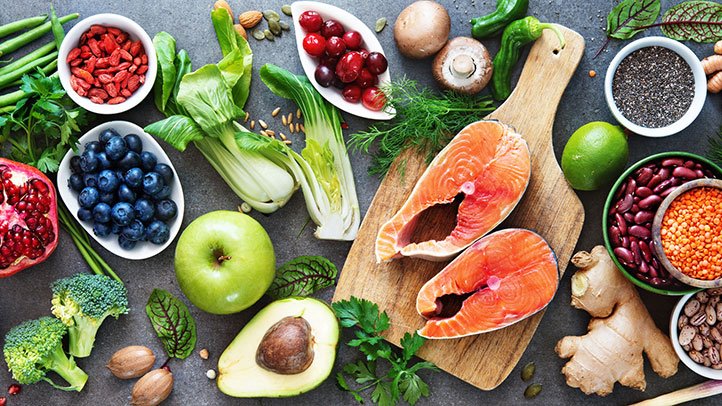The Debate on Organic Food: What You Need to Know
Fact: Every year in the United States, one billion pounds of pesticides are sprayed on our foods. So, where do all those pesticides go, and are they harmful to us?
The Pesticide Problem in Conventional Produce
When pesticides are sprayed, the growing plant, tree, shrub, or bush absorbs these chemicals, which alters the natural state of the plant. Some of the spray lands on the soil, and sinks into the earth, filling the soil with pesticides that eventually make it all the way to the ground water.
Additionally, some of the spray hits the surface of our water supplies, the same supply that irrigates the plants we eat, which have already received a dose of pesticides. Then it permeates the water we drink, cook with, and use to bathe our children.
The USDA suspects that 50 million Americans obtain their drinking water from ground water that may be contaminated with pesticides and other chemicals.
The USDA and the FDA continually reassure us that chronic low-level exposure to pesticides and other agricultural chemicals is safe. However, many of the commonly used chemicals in pesticides have long been classified as possible or probable carcinogens and endocrine disruptors.
For us at mid-life, the risk of dementia and Alzheimer’s increases the more frequently we are exposed to or ingest pesticides.
The Link Between Pesticides and Cognitive Health
In the last decade, the results of several large-scale studies have been published focusing on just this connection. More than 3,000 people participated in a multi-year study published in the journal, Neurology. The researchers found farmers and gardeners were twice as likely to develop Alzheimer’s as the general population. Men seem to be at higher risk than women, possibly because there are more men in farming jobs than women.
There are also an increasing number of studies linking exposure to pesticides to cognitive dysfunction and even overt dementia, including AD dementia, and Parkinson’s disease. Some of the latest research finds that some individuals, due to their genetic composition, may be more vulnerable to the toxic effects of pesticides compared to other individuals with different genetic backgrounds.
Nutritional Benefits of Organic Choices
I am very concerned with the amount of chemicals sprayed on our foods. Fortunately, there is a way to reduce our exposure to the harmful effects of pesticides.
Organically grown foods contain fewer pesticide residues in comparison to conventionally grown foods. Organic foods are readily available these days and, in my opinion, organically grown foods taste better.
Cost Considerations: Is Organic Worth the Price?
Sometimes, however, the cost of organic foods can dissuade people from buying them, but you can buy organic food on a budget, most often at farmer’s markets and sometimes in the frozen food section.
If you have a choice between buying organic or conventional foods, wouldn’t you like to know which ones are the most affected by pesticides? Then you can choose to buy organic or not, based on that information.
One tip to help with the higher cost of organics is to buy only those in season, or buy organic frozen. These are picked at the height of the best flavor season for that fruit or vegetable, and then quickly frozen to lock in as much flavor as possible.
The Dirty Dozen
Each year The Environmental Working Group, a non-profit, non-partisan organization dedicated to protecting human health and the environment analyzes data from the federal Department of Agriculture. They evaluate pesticide use and create two lists: the Dirty Dozen list, which contains the highest number and concentration of pesticide residue foods, and a Clean Fifteen list, which contains the lowest number and concentration of pesticide residue foods.
Living Vibrantly
Like what you see? Subscribe to receive exclusive tips to start living Vibrantly!
Dirty Dozen Foods for 2023:
- Strawberries
- Spinach
- Kale, Collard & Mustard Greens
- Peaches
- Pears
- Nectarines
- Apples
- Grapes
- Bell & Hot Peppers
- Cherries
- Blueberries
- Green Beans
Living Vibrantly
Like what you see? Subscribe to receive exclusive tips to start living Vibrantly!
Clean 15 Foods for 2023:
- Avocados
- Sweet Corn
- Pineapples
- Onions
- Papayas
- Sweet Peas
- Asparagus
- Honeydew Melons
- Kiwi
- Cabbage
- Mushrooms
- Mangoes
- Sweet Potatoes
- Watermelon
- Carrots
Living Vibrantly
Like what you see? Subscribe to receive exclusive tips to start living Vibrantly!
Making the Right Choice: Organic or Not?
Organic vs. non-organic has been, and will be for some time to come, a fiercely debated topic. A friend recently told me she will only buy conventionally grown strawberries because they taste so much better, and she doesn’t care about the pesticides. I can’t agree, but all people are entitled to their opinions. And so the debate continues…
Until next time…. Be Vibrant!
Read Next …
Your Brain on Food
Explore the direct impact of your dietary choices on cognitive well-being and mental sharpness. Just as organic foods affect your physical health, what you eat shapes your brain function too.


L.J. Rohan is a Gerontologist (University of Southern California’s Davis School of Gerontology), Certified Aging in Place Specialist (CAPS), and Vibrant Aging™ Coach. L.J. is dedicated to redefining the aging process. With a focus on holistic well-being, she combines scientific research and practical insights to guide women age 55+ towards a vibrant, fulfilling life. Her work has been featured in numerous publications and she frequently speaks at institutions such as Yale University and Southern Methodis University. Be Vibrant!

